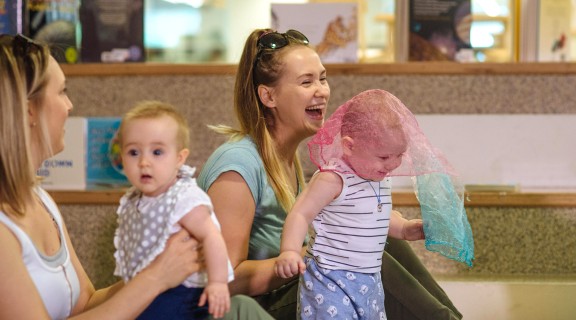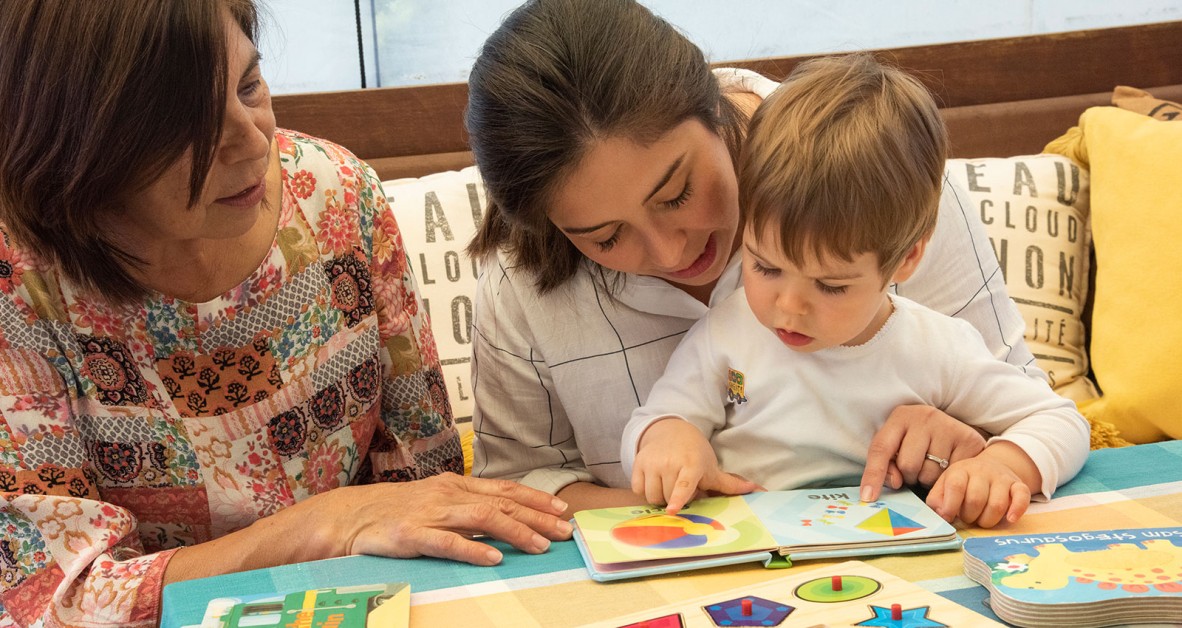
Simple activities that help your baby learn
25 October 2019 | State Library of Queensland
Little things you do each day, like talking, singing, playing and reading, can have a big and positive impact on your baby’s development — right from the very start. Try these simple activities and add them to your daily routine.
Newborn to six months
- At feeding, nappy change or play time, spend some time face-to-face and close up. Experiment with different facial expressions and movements and see if your baby can react or copy you. This is early communication and your baby is learning to engage with you. Respond to your baby’s movements and sounds as if they are starting a conversation with you.
- Talk gently with your baby and describe what you're doing and seeing as you go about your day. It may seem silly at first but your child learns language by hearing it and every interaction counts.
- Sing songs and rhymes, especially those with actions and repetition. If you need a refresher on these, your local public library rhyme time session is a great place to start.
- As your baby becomes more alert, play interactive games like peek-a-boo and `Round and round the garden'.
- Point out and name things as you experience them (at the shops, pictures in books). Use gestures to help with understanding (waving for goodbye and hello, shaking your head for no).
- Look for sensory touch and feel, lift the flap, or black and white books at your local library. While you’re there, sign up for baby's first library card. It’s never too early!

6 to 12 months
As your baby grows, they will start pointing at objects to communicate. It’s important to respond with the words they’re seeking as well as provide opportunities to expand their knowledge. For example, “Truck! That’s your toy truck. What noise does a truck make?”
- Join in at play time and follow your child’s lead on what sparks their curiosity.
- Sing nursery rhymes with actions, like `Head, shoulders, knees and toes' and `Twinkle, twinkle little star'. Sing at a slower pace so babies can hear and learn more easily. Once they know the rhymes you can speed up the tempo as babies learn more following a slower pace.
- Take a trip to the local library together and join in on a free Story time or Rhyme Time session. Look for books together that interest your child. Allow them to explore books and turn the pages. It doesn’t matter if you don’t read it start to finish or read the words at all. What’s important is the conversation you have and the time you spend together.
- Keep books around the house and where your child can reach. Story time is best when it can happen anytime!
- Repeat favourite books again and again. You may get bored but little ones love revisiting favourites and delight in knowing what comes next.
- Provide opportunities for your child to play and discover. Empty the plastics drawer and experiment with stacking. Pots, pans and wooden spoons make great instruments. Go outside and see what fun you can make with with some water, sand, dirt or all three!
For more great ideas subscribe now for our free monthly newsletter. You can also sign up for free personalised tips, tailored to each stage of your child’s development.
Comments
Your email address will not be published.
We welcome relevant, respectful comments.